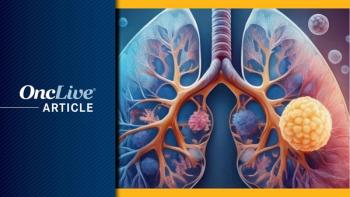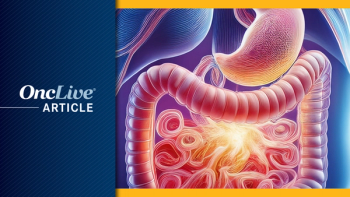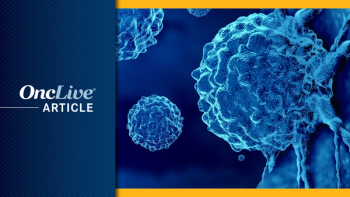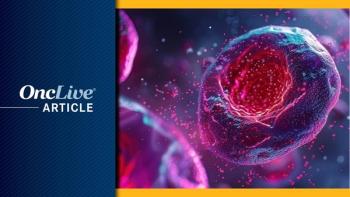
HER2+ Breast Cancer Paradigm Slated to Expand With Novel Therapies

Melody A. Cobleigh, MD, sheds light on novel treatment approaches for patients with HER2-positive breast cancer that are under investigation as well as strategies that have already been incorporated into practice.
Melody A. Cobleigh, MD
On the heels of practice-changing data from the KATHERINE trial, Melody A. Cobleigh, MD, explained that the pipeline is bursting with new agents that have the potential to further revolutionize treatment for patients with HER2-positive breast cancer.
“There has never been a more promising time in the treatment of patients with HER2-positive breast cancer,” said Cobleigh. “We have several agents that have already received FDA approval, but there are many more that are in the pipeline that haven't been baptized yet. These include TKIs, newer monoclonal antibodies, antibody-drug conjugates, and bispecific antibodies that bind to [other proteins] beyond HER2.”
In December 2018, data from the phase III KATHERINE trial showed a 50% reduction in the risk of invasive disease recurrence or death with ado-trastuzumab emtansine (T-DM1; Kadcyla) versus trastuzumab (Herceptin) in women with early HER2-positive breast cancer who had residual invasive disease following neoadjuvant therapy.1,2
The 3-year invasive disease-free survival rate was 88.3% with T-DM1 versus 77.0% with trastuzumab. Moreover, investigators noted a consistent benefit with T-DM1 irrespective of a patient’s eligibility for surgery, hormone receptor (HR) status, node positivity, and whether or not they previously received trastuzumab alone or with ≥1 anti-HER2 agent in the neoadjuvant setting.
Further research is dedicated to exploring whether the addition of targeted therapies, such as afatinib (Gilotrif), lapatinib (Tykerb), neratinib (Nerlynx), and tucatinib (ONT-380) could result in a synergistic effect with the standard anti-HER2 therapies that are available.
Moreover, preliminary research with the T-cell bispecific antibody, p95HER2, and more mature research with the antibody-drug conjugate (ADC) trastuzumab deruxtecan (DS-8201), have shown promise. Investigators are currently evaluating the use of DS-8201 in several ongoing phase III trials.
OncLive®: How have the data from the KATHERINE trial with T-DM1 impacted the field?
In an interview during the 2019 OncLive® State of the Science Summit™ on Breast Cancer, Cobleigh, a professor of medical oncology at Rush University Medical Center, shed light on novel treatment approaches for patients with HER2-positive breast cancer that are under investigation as well as strategies that have already been incorporated into practice.Cobleigh: The KATHERINE trial is groundbreaking in that it proved, for the first time, that you could use non-pathologic complete response (pCR) to identify the activity of a drug. Patients who did not have a pCR to HER2-based neoadjuvant therapy plus chemotherapy were randomized to receive T-DM1 versus trastuzumab. In the patients who received T-DM1, the rate of recurrence was cut by 50%.
What are some of the TKIs currently under development?
Are there any notable ADCs under investigation?
Are these agents being investigated as single agents or in combination?
It's not just that though; it's a conservation of patient resources. When you conduct adjuvant therapy trials to ask a similar question, you need twice the number of patients [to participate]. For example, in the APHINITY trial, 4000 patients were needed to show a small benefit. Here, 2000 patients were needed to show a large benefit. It's not necessarily that these drugs are more active, but that we're targeting patients who actually need the treatment. I have no doubt that the KATHERINE data will reduce the use of trastuzumab in patients who have not had a pCR [following neoadjuvant therapy]. There are several TKIs that are being evaluated in clinical trials. Hopefully, they will be more effective or less toxic than the ones we have available now. Since they're in clinical trials, we can't definitively discuss their effectiveness. However, some of these agents have shown promise in phase II trials, and many of them are in phase III trials now. There are a several ADCs in development. For example, the Daiichi Sankyo compound, known as trastuzumab deruxtecan, has shown some very promising results. There are 3 ongoing phase III trials that will tell us where this drug will end up [in the paradigm]. The interesting thing about the ADCs is that these agents basically offer a safer way to give chemotherapy. That is not to say that they're not without toxicity. Understanding better ways to deliver these compounds to reduce toxicity is the focus of a lot of research right now. Both. For example, let's take tucatinib. That medication is being investigated in combination with trastuzumab and capecitabine in a randomized, placebo-controlled trial to see if we can add to the benefit of trastuzumab and chemotherapy.
In terms of escalated and de-escalated approaches, which patients are suitable for those strategies?
What should be the focus of future research?
What percentage of patients have HR- and HER2-positive disease?
What is the biggest takeaway in this research area for your colleagues?
There have been reports of its efficacy [in patients with brain metastases], suggesting that tucatinib can cross the blood-brain barrier and show activity. [Specifically, tucatinib] is active as a single agent in terms of shrinking brain metastases. When you combine it with capecitabine—another agent that crosses the blood-brain barrier—hopefully that will result in a better “mouse trap” as well.We’re talking about de-escalating therapy in the adjuvant setting. Right now, we are really using combination chemotherapy plus antibody therapy in the adjuvant setting. Now that we’re seeing these very promising results with trials like KATHERINE, one of the questions is whether we can drop at least one of the chemotherapy drugs or shift to an approach that is a little less toxic. I would very much like to see us try to get rid of chemotherapy. That may come in the form an ADC, which still has chemotherapy but is not as toxic as some of the native chemotherapeutic agents. Some of the bispecific antibodies that are trying to bring the immune system to the HER2 receptor is a very promising area of research. For the patients with HR-positive, HER2-positive breast cancer, there is an interesting trial in which investigators are looking at an all oral therapy in metastatic breast cancer. Specifically, [it is with] palbociclib (Ibrance) plus a TKI, which is a terrific idea. It's about 50% in the older literature. Since the FDA has changed the diagnosis to ≥1% expression, it's more like 70% of patients who will present with metastatic HER2-positive breast cancer that is positive for both HR and HER2. The biggest takeaway that can be applied to clinical practice is the results of the KATHERINE trial; there's no doubt about that. The other big takeaway is that pharmaceutical companies are continuing to investigate the HER2 pathway, even though we're doing extremely well. That's great for patients and investigators who are doing clinical research.
References
- Geyer Jr CE, Huang C-S, Mano MS, et al. Phase III study of trastuzumab emtansine(T-DM1) vs trastuzumab as adjuvant therapy in patients with HER2-positive early breast cancer with residual invasive disease after neoadjuvant chemotherapy and HER2-targeted therapy including trastuzumab: primary results from KATHERINE (NSABP B-50-I, GBG 77 and Roche BO27938). Presented at: 2018 San Antonio Breast Cancer Symposium; December 4-8, 2018; San Antonio, TX. Abstract GS1-10.
- von Minckwitz G, Huang CS, Mano MS, et al. Trastuzumab emtansine for residual invasive HER2-positive breast cancer. N Engl J Med. 2019;380(7):617-628. doi: 10.1056/NEJMoa1814017.



































